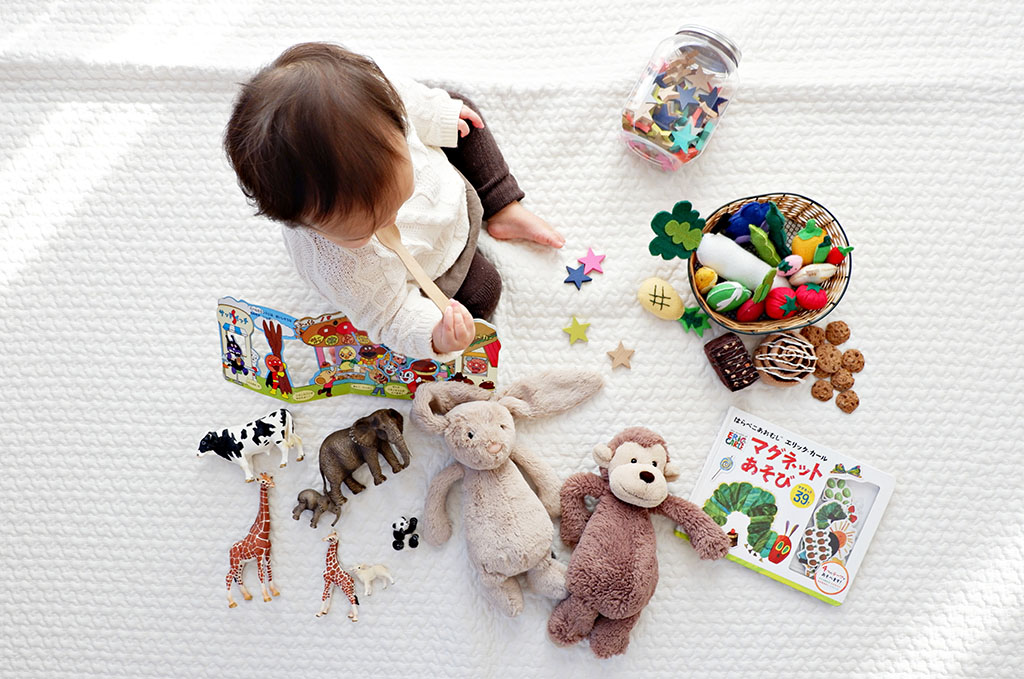
Guest Author: Alice Hall, UNICEF Australia Program Manager for Early Childhood Development
It’s not just fun and games: these simple indoor activities will help develop your child’s fine motor skills, decision-making ability and creativity.
Whether you are inside because of bad weather or because you are isolating somewhere without a backyard, you can still play some easy and fun indoor games to support your child’s development.
UNICEF works to support children in their early years as it is a time of incredible brain growth and development never repeated. Alongside adequate nutrition and nurturing care, play has a vital role in giving children the best possible start in life.
While the activities below sound like fun and games, they are all informed by our play-based approach to early childhood development and are designed to help your little one develop their fine motor skills, social skills, decision-making ability and creativity.
1. Let’s get messy! Make playdough
Kids love playing and creating things with playdough.
Tactile learning is great for kids as it allows them to be creative and it is also an opportunity for children to use their hands – refining their fine motor skills.
Making and playing with playdough is also a perfect time to support language skill development as you plan and describe what you and your child are making and engage in pretend play together.
In preschool and playgroups, playing together like this is a common way the teacher will interact with the kid to support their learning, helping the child put words around what they’re doing.

2. Play ‘I spy’ or ‘I see’
Practice some maths and language skills by playing the simple game “I see” or “I spy”. Keep it simple. Start by saying: “I see in this room something blue”. Let your child ask you more clues on the object you have in mind. They can ask as many questions as needed until they figure out what it is.
This activity is great because it works inside or outside – or even on long car trips (as I am sure many parents already know!).
3. Foster imagination! Build a cardboard or pillow fort
Build a fort using old carboard boxes or sheets, blankets, couch cushions, pillows and chairs.
Remember not to rush the building process and let your child be involved. Activities like building forts help young children create and test hypotheses about the world around them – such as how objects fit and balance together, or, what is needed to make the fort big enough to fit both themselves and their favourite teddy bear.
Your child might tell you a story about the structure you are building together. This is great because it means the activity is fueling their imagination and talking about it helps to build their language skills.
4. Play with a torch
Get a flashlight out and teach your children how to make shadow puppets on the wall. This can be a lot of fun especially if you make a story with the shadow puppets. If your child wants to hold the flashlight, let them.
Using torches to create an imaginary world of shadow puppets with your child is a wonderful way to explore how to make and recognise patterns and tell stories together, promoting creativity and language skills.
5. Wash clothes, toys or dishes with your child
With your child, you can set up a little bath and wash their toy cars, action figures, dolls or little animals. Simply collect your child’s toys with them, fill the sink with soapy water and have a bucket of water on the other side to rinse the toys off. Lastly, dry them with a towel. You can go through these activities with your child or they can do this by themselves with you just watching and talking with them about what they are doing. This activity is great as it is not only productive, but it helps your child learn how to follow a process.
6. Let’s get mathematical
There are some fun and simple maths games that parents and carers can try at home.
Counting game: Use counting sticks that you can find at home – such as chopsticks or straws – to teach your child to count and do some basic maths.
Shape making: Make basic shapes like triangles, circles and squares in different sizes from recycled paper. Then your children can put them together to create pictures of houses or cars.
Shapes, numbers and recognising patterns are all important components of developing early numeracy skills. These are also opportunities to explore concepts like size, sorting and measuring.
UNICEF and Early Childhood Development
Even in the most remote and challenging settings, UNICEF is working to make sure children not only survive but thrive, ensuring they have the best development possible and are ready to learn at school on time. In the Asia Pacific region, UNICEF supports early childhood programs in countries like the Solomon Islands, Laos, Bangladesh, Papua New Guinea and Timor-Leste.
Leave a Reply